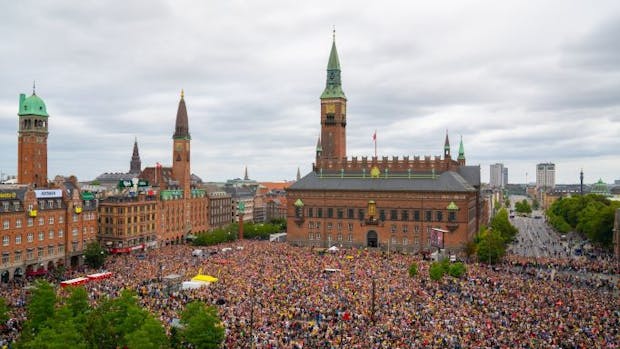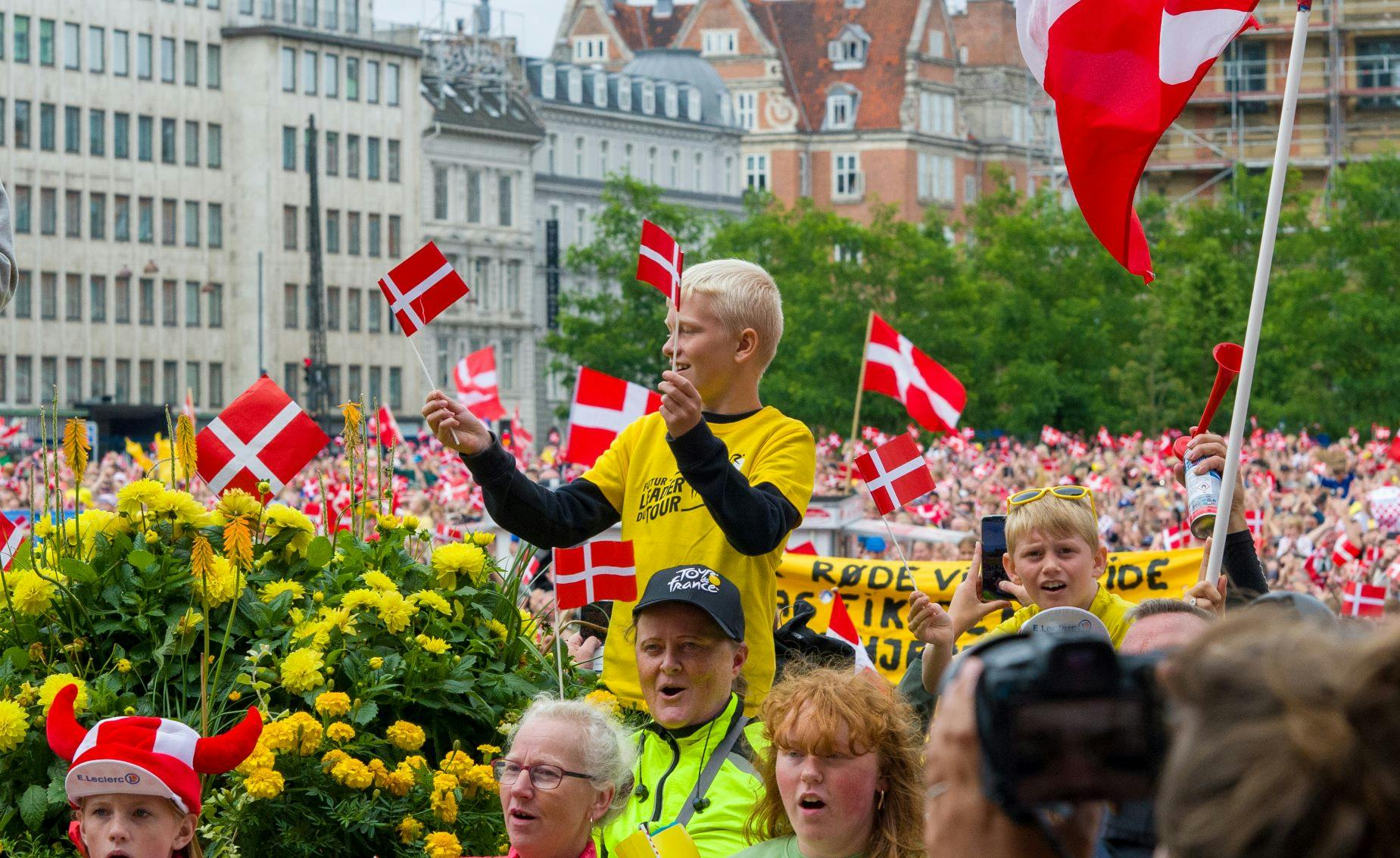
The Tour de France’s Grand Départ headed further north than ever before this summer when Copenhagen welcomed the cycling showpiece from July 1-3.
Widely dubbed as the world’s most bike-friendly city, Copenhagen appeared to be a natural choice to stage the sport’s biggest event. Thousands of fans lined the roads in and around the capital, with the spectacle boosted by the performance of home favourite and eventual Tour winner Jonas Vingegaard.
Although fans witnessed just three days of racing, local organisers launched a series of activations in the days and weeks leading up to the event to drive engagement and maximise riders’ exposure to spectators.

‘Cycling is for everyone’
Two days before the event, competing teams were presented on a route that encompassed a bike bridge crossing Copenhagen Harbour. Riders were then presented on a stage at the Tivoli Gardens amusement park, where they were saluted by some 10,000 fans.
“On the day of the actual Grand Départ, all of the city was buzzing with several dedicated fan zones, yellow flags and polka-dotted caps, and smiling faces filled the streets,” says Lars Vallentin Christensen, senior manager of events at Wonderful Copenhagen, the official tourism organisation of the Capital Region of Denmark.
“One main activation was the Festivélo, a family-orientated fan village organised by the city of Copenhagen with lots of cycling activities for everyone. The day after the race, the time trial route was kept open without traffic and everyone in Copenhagen was invited to test the time trial on their own bike.
“Another big activation was a month before the Grand Départ, when the Storebælt Bridge was closed for traffic and the 16,000 participants cycled 100km and crossed the majestic bridge, which was also part of the Tour de France in Denmark.”
Cycling culture
The event itself provided an opportunity to shine a spotlight on Copenhagen’s cycling heritage and culture, with locals invited to cycle the route themselves and “ride like the stars”.
An early start was organised for serious riders before the route took on a more leisurely pace, with children and parents taking part, while elderly people were taken around on cargo bikes.
“In Copenhagen, cycling is for everyone and so was the Grand Départ,” says Vallentin. “The main focus of all the city’s PR efforts was on showcasing the bike infrastructure of the city and showing how cycling is an integral part of Copenhagen’s position at the top of Monocle’s list of the world’s most liveable cities.
“We want to share our solutions and inspire other cities to invest in bicycle infrastructure instead of more cars. And we also want to celebrate the everyday cyclists of Copenhagen as unsung heroes, who choose the healthy and sustainable way to commute instead of congesting roads and parking zones with more cars.”
Fine-tuning preparations
Copenhagen first secured hosting rights for the Grand Départ back in February 2019, with the event having originally been due to take place in 2021.
Pandemic-related disruption led to an agreement being reached with Tour organiser Amaury Sport Organisation (ASO) to reschedule the event for July 1-3, 2022.
In some ways, the delay was a blessing in disguise, as Copenhagen was already scheduled to host four matches during the postponed Uefa Euro 2020 football tournament in the summer of 2021.
The rescheduling of the Grand Départ allowed organisers to fine-tune preparations whilst the risk of the race being overshadowed by the Euro 2020 matches was averted. The delay was not without its challenges, though, as Vallentin explains.
“The postponement complicated the event, as we had to push all related activities and find budgets for prolonging the planning process,” he says.
“It gave us a bit more time to perfect the execution, but as the focus of the activation was on the last 100 days before the Grand Départ, it was… a focused sprint as we got closer to the event.”
Local heroes
The interest in Danish rider Vingegaard only served to drive the already huge excitement surrounding the race.
Locals turned out in support of all riders, but Vingegaard, as one of the pre-race favourites for the yellow jersey, was the man locals wanted to see.
“Danes love the Tour de France, and it was always going to be a huge success, with lots of people celebrating the riders,” says Vallentin. “However, having Jonas Vingegaard going full circle and returning triumphant to be celebrated in Copenhagen really tied the event together and was a beautiful way to end a summer of bike euphoria in Copenhagen.”
It is clear that the experience has given the city a taste for more.
“There is no doubt that because the event was such a successful public spectacle and managed to create a strong shared feeling of being part of something historic, Copenhagen will be more open to once again investing in events of this scale,” Vallentin adds.
“Both this year’s Tour de France and last year’s Euro 2020 enjoyed the boost from hugely successful local heroes, just as they showed that when it comes to bringing an event out of the arenas and having them manifested in a local celebration, few cities match Copenhagen.”
Since hosting the Grand Départ, Copenhagen has staged the Tour of Scandinavia on the Women’s World Tour, as well as the UCI Trials World Cup. The city has already secured hosting rights to the UCI’s Track World Championships in 2024 and BMX World Championships in 2025.
“We have had an ongoing dialogue with the UCI for the last 20 years, resulting in a great number of cycling events being hosted in Copenhagen. Currently discussions are building on the hosting of the UCI Road World Championships in 2029, which is a great guiding star for us this decade,” says Vallentin.
“The Grand Départ has shown us that the sky is the limit and that we should continue to have high ambitions for the future, which undoubtedly should result in a large range of major events being hosted in the city.”